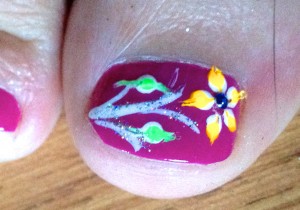
Here’s the question that keeps coming up: Is going to conventions vital for F&SF writers?
And the answer is no, of course not. Don’t go to conventions unless you are genuinely deriving pleasure of some sort from them. If you’re going to go and just sit in a corner and be miserable, then don’t waste your money.
I do like cons. I’d probably go to at least a few even if I wasn’t just writing. I find them a great place to see old friends and make new ones, hear interesting discussions, and even do a little networking. To make the most of them, I may set up meetings with folks I want to see in order to make sure there’s time for it. If I’m on panels, I make sure I’m ready to talk about whatever the topic is. If I’m reading, I rehearse the piece well beforehand and make sure I know how long it takes to read.
But part of my prep is also making sure I look professional as well. The only time I’ll go off to get my nails done is before a con (or some other work outing) and I always make sure my hair is recently cut, that I’ve got clean and reasonably matching outfits, suitable footwear, and all the rest. But that’s as much for internal as external factors – I know if I’m feeling well-assembled, I’ll be more confident overall.
I’d be curious to hear what other folks do to prepare for conventions, or if you’ve got tips for hotel existence. I’ve learned to make sure I’ve got a change of clothes in my carry-on if I check a bag, that ballet flats make great light-weight footwear for cons, and to make sure I’ve got all my charging cords. How about you?
Enjoy this career advice for writers and want more content like it? Check out the classes Cat gives via the Rambo Academy for Wayward Writers, which offers both on-demand and live online writing classes for fantasy and science fiction writers from Cat and other authors, including Ann Leckie, Seanan McGuire, Fran Wilde and other talents! All classes include three free slots.
Prefer to opt for weekly interaction, advice, opportunities to ask questions, and access to the Chez Rambo Discord community and critique group? Check out Cat’s Patreon. Or sample her writing here.







5 Responses
Great post, Cat. Making sure I pack snack food I can keep with me in a bag so that I don’t succumb to expensive (and unhealthy) treats if my blood sugar drops is one thing I have started to do at cons. That and a good attitude – being in a foul mood at a con can be more harmful than not going.
That’s a good one. I usually toss a box of granola bars in my suitcase for that reason. Because it is no fun feeling cranky and hungry!
Along with snacks, making certain I stay hydrated (which, for me, means 2 gallons of water a day. . .not kidding).
I make certain I bring an extra chage of comfortable clothes just in case.
I also make certain I scope out quiet spots in case I’m overwhelmed.
I also have my “I just spilled coffee on myself, time to swap out shirts” change of clothing. 😉
It is almost universal that – once they are at the convention itself – people do not get enough water. All the unaccustomed activity combined with dehumidified hotel air makes it all too likely. I once started mildly hallucinating because I was so dehydrated–so drink up, people!